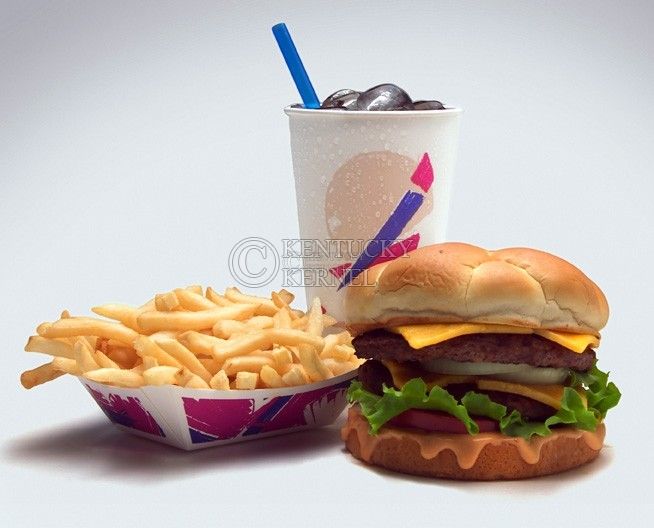Reading the label: Ky. restaurants may have to reveal calorie content
February 12, 2010
Counting calories could become easier if Kentucky passes a bill requiring restaurants to post nutritional information next to each menu item.
State Rep. Kelly Flood (D-Lexington) and Sen. Denise Harper Angel (D-Louisville) filed “Consumer Menu Education and Labeling” on Jan. 13 to help make citizens aware of the food they are consuming.
“Menu labeling will mandate that all chain restaurants with 20 or more locations nationwide post the calories of all items on their menus and their menu boards, including fast food restaurants,” Flood said. “This would give consumers nutritional literacy.”
Flood said it has been law since 1990 for all packaged food products to display nutritional information, and she believes restaurants should be required to do the same.
“Right now it’s just a guessing game,” Flood said. “All of these major chain restaurants have this information, it’s just getting them to post it.”
Stephen Perry, food and nutrition science lecturer, said menu labeling is needed because Kentucky is ranked as one of the most obese states, and people are eating at restaurants more than ever.
“About 75 percent of food is consumed outside of the home now,” Perry said. “People should be given the nutritional information in order to make the best choices for themselves.”
Flood said menu labeling has been a success in cities that have made it mandatory, such as Nashville, Seattle and New York City.
“Cities where labeling is the law of the land show 78 percent of consumers use this information and use it to reduce their caloric intake by getting meals that are 100 calories less,” Flood said.
Many students think posting nutritional information on menus would help them determine what meal to order.
“It would be nice to have that information,” said Whitney Burnic, an agriculture biotechnology senior. “I think a lot of people just don’t know about it. If it doesn’t happen I’m probably going to continue to eat like crap.”
Yet other students say they would not use this information because they think it is controlling and useless.
“I think it’s overbearing, plus there is going to be cost associated with it,” geography senior Josh Pascua said. “And things aren’t always cooked the same. The caloric content could be different each time the meal is prepared.”
Flood said legislation is not interested in controlling what people eat, but wants to help consumers.
“This bill is not about becoming the food police,” Flood said. “It’s about transparency for the food we eat.”
However, Sandra Bastin, associate extension professor and foods and nutrition extension specialist, said it will take more than posting calories on menus to make people healthier.
“I think it’s important when you’re talking about this to also have a physical activity plan,” Bastin said. “Eating healthy is also embracing physical activity, like walking the dog or going outside and kicking a ball. I think we need to look at that together.”
Perry said although this bill is a start, more than nutritional information is necessary for people to develop healthier lifestyles.
“We know that giving people information does not change behavior,” Perry said. “But giving the information is the first step.”
Flood said the bill’s approval will not be immediate, but supporters will be patient.
“It’s not likely to pass this year,” Flood said. “But in other states where it has passed, it’s taken a while. We’re going to keep trying.”
































































































































































